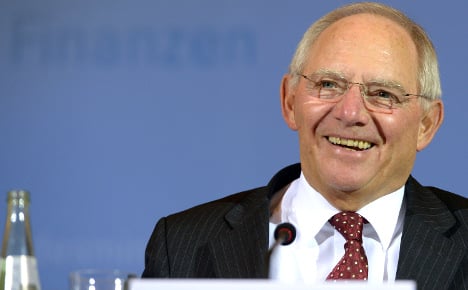November became the month with the highest increase in tax take over the previous year so far in 2014.
On average, there had so far been a 3.4 percent increase in the amount of tax paid each month compared with the same month in 2013, slightly lower than the predicted increase for the whole year.
Officials at the Finance Ministry added that they expected to borrow less in 2014 than originally expected.
“According to our current estimates, we won't need all of the €6.5 billion credit increase we had planned for this year”, the report said.
The Ministry expects the economy to continue improving through to the end of the year, judging the situation to be stable.
“Indicators point to a further uptick in activity across the economy in the final quarter”, the report said.
Germany's current account surplus – the amount the country's exports exceed its imports – increased to €172.9 billion in the year to October, €26 billion more than in 2013.
But other countries continue to accuse Germany of undermining their economies by importing too little.
Good mood hits shoppers
Consumer confidence in Germany saw a boost in December as shoppers hit the stores for Christmas and looked ahead to the new year with optimism, a poll found on Friday.
After stabilising in November following several months of decline, "consumer sentiment showed solid development in December," market research company GfK said in a statement.
"The consumer climate is continuing its upward trend."
Looking ahead to 2015, GfK's headline household confidence index was forecast to rise to 9.0 points in January from 8.7 points in November.
"Consumers apparently now assume that the period of economic weakness in Germany will pass and the domestic economy will return to growth in the coming months," the pollsters said.



 Please whitelist us to continue reading.
Please whitelist us to continue reading.
Member comments